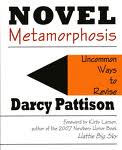
Yoga Not now देखा जाए तो हम लोग बहाना एक्सपार्ट होते हैं. कोई शक नही चीजों की सराहना भी करते हैं पर बहाने भी तैयार होते हैं जैसाकि अब इन श्रीमति जी को ही लीजिए … बहुत प्रशंसा कर रहे हैं कि योग बहुत अच्छा रहता है … योग करना चाहिए पर जब अपने करने की बात आती है तो ये बोल रही हैं कि अच्छा है पर वो अगले साल सोचेगी … अरे !!! सोचेगी … ये भी नही कहा कि अगले साल से करुगी … वो भी सोचेगी … हे भगवान !!!
IBN Khabar
ये ऐप खासतौर पर उन लोगों को लिए तैयार किया गया है, जिनको घर में समय नहीं मिलता। तो वो फुर्सत में ऑफिस में ही, यहां तक कि अपनी ऑफिस चेयर पर बैठे-बैठे ही, वर्क स्टेशन पर काम करते करते ही योगा कर सकते हैं। इसमें ज्यादातर योगासन उसी तरह से तैयार किए गए हैं, जो चेयर पर बैठे-बैठे ही किए जा सकते हैं। Read more…
वैसे योग वाकई बहुत अच्छा है Yoga Not now वाला आईडिया सोच रही हूं ड्राप ही कर दूं .. 
योग दिवस
नयी दिल्ली : अंतरराष्ट्रीय योग दिवस के मद्देनजर देश और विदेश में तैयारी जोरो पर चल रही है. केंद्रीय विदेश मंत्री सुषमा स्वराज योग दिवस में भाग लेन न्यूयॉर्क रवाना हो गई हैं. वे न्यूयॉर्क में ही योग दिवस के कार्यक्रम में शिरकत करने वाली हैं. वहीं भाजपा के राष्ट्रीय अध्यक्ष अमित शाह पटना में योग दिवस मनायेंगे. राष्ट्रीय राजधानी में भी 21 जून को अंतरराष्ट्रीय योग दिवस के अवसर पर कई दिग्गज भाग लेंगे जिसको देखते हुए सुरक्षा के व्यापक इंतजाम किए गए हैं.यहां मुख्य कार्यक्रम के लिए सुरक्षा कर्मियों की 30 कंपनियों को राजपथ एवं आसपास के क्षेत्रों में तैनात किया जायेगा.
दिल्ली पुलिस सहित करीब 5000 सुरक्षा कर्मियों को योग स्थल एवं आसपास की सुरक्षा के लिए तैनात किया जायेगा. प्रधानमंत्री नरेंद्र मोदी सहित हजारों योग अभ्यासी सुबह होने वाले कार्यक्रम में भाग लेंगे. खुफिया एजेंसियों द्वारा अलर्ट जारी किये जाने के बाद दिल्ली पुलिस ने कार्यक्रम के दौरान किसी भी हवाई खतरे को टालने के लिए पतंग, गुब्बारे, ग्लाइडर एवं माइक्रो लाइट वस्तुओं को उडाने पर रोक लगा दी है. इसके अलावा फोटोग्राफी के लिए ड्रोन उडानों पर भी प्रतिबंध लगा दिया गया है. दिल्ली पुलिस आयुक्त बी एस बस्सी ने कहा, ‘‘राजपथ पर अंतरराष्ट्रीय योग दिवस कार्यक्रम के लिए पूर्ण सुरक्षा कार्यक्रम किये गये हैं. 18 डीसीपी एवं 30 कंपनियां इस अवसर पर ड्यूटी पर तैनात रहेंगी.’’ अंतरराष्ट्रीय योग दिवस पर आयुष मंत्रालय द्वारा द्वारा आयोजित 35 मिनट का कार्यक्रम सुबह साढे सात बजे शुरू होगा. बस्सी ने कहा कि स्थानी पुलिस सुरक्षा प्रबंधों पर निगाह रख रही है तथा इलाके में खोजी कुत्तों एवं बम निष्क्रिय दस्तों की मदद से छानबीन की जा रही है. पुलिस के एक वरिष्ठ अधिकारी ने बताया कि 18 डीसीपी स्तर के अधिकारी सुरक्षा प्रबंधों पर निगाह रख रहे हैं जो गणतंत्र दिवस परेड के समान है. उन्होंने कहा कि योग दिवस कार्यक्रम पर करीब 40 हजार लोगों के भाग लेने की संभावना है. इसमें मंत्रियों एवं सांसदों सहित करीब 500 गणमान्य अतिथि होंगे. अधिकारी ने कहा कि इसके अलावा हजारों अधिकारी और करीब पांच हजार बच्चे कार्यक्रम में योग करेंगे. चौदह जून से ही यातायात पर पाबंदियां लगा दी गयी है. राजपथ पर विजय चौक से लेकर इंडिया गेट तक यातायात को रोक दिया गया है तथा क्षेत्र की लगातार निगरानी की जा रही है. See more…
The post Yoga Not now appeared first on Monica Gupta.
By John Louth and Merel Alstein
What is a state? We think we know but when we compare things that are (e.g. Monaco, Andorra, Liechtenstein) to things that are not (e.g. Scotland, Kosovo, Palestine) our understanding unravels. This is a core question of international law and the troubling thing is that the best experts in the subject wouldn’t give a consistent explanation for the differences between these examples.
The UN is the closest thing we have to a world government. It is founded on a legal document (The UN Charter), it has a Court to resolve disputes between members, it has a Parliament of states (the General Assembly), and crucially, unlike its predecessor the League of Nations, it can authorize collective enforcement of its will (via the Security Council). There are dozens of other international organizations getting on with regulating different aspects of the world’s behaviour, so how come in spite of this appearance of a legal order, international law seems incapable of addressing urgent problems of poverty, violence, and climate change? How come the powerful get away with breaking the law? Why does justice so often get trumped by expediency?

Maybe that’s not fair — our national governments suffer from these same failings too. They do some basic things well (international law does a great job co-ordinating postage and telecoms) but can’t seem to manage the big breakthroughs. Surely there is a difference though: we created the international system to improve on what our governments can achieve on their own. If it can’t do better, then what is the point?
Today more people than ever before are engaged with international law. Many are, as one would expect, learning and applying it, but an increasingly vocal proportion question its role, its effectiveness and even its very existence. If it is to fulfil its promise, international law needs to rise to the following challenges.
(1) Is it law or is it just about power?
International lawyers are tired of hearing this question but it isn’t addressed to them. It is addressed to the leaders who take part in a legal order yet subvert it at the same time. Every state sends and receives diplomats yet simultaneously carries out espionage. States choose to use law to enforce some obligations whilst insisting not to be bound by others. The late great Sir Ian Brownlie used to say “if you doubt the reality of international law, have a look at my bank balance”, i.e. his clients (states) were paying him so they must believe it in. But that is just the problem — the very actors that Brownlie cited as proof of the reality of the law are the ones who can also make it seem like an optional extra, not a source of obligation.
(2) Who does it apply to?
Nowadays many of the entities regulated by so-called international law are not nations: corporations, international organizations, indigenous peoples, individuals, armed resistance groups. Cases at the International Criminal Court pit its Prosecutor (an individual acting on behalf of an international organization) against an individual criminal defendant. Then a group comes along who certainly seem to merit the protection of international law, such as the Guantanamo detainees, and we find that they don’t fit into any accepted legal category. If states can insist that only those laws they consent to can bind them, what about all of these other entities? Do they get more of a say in the content and application of the law? Should there be gaps in protection from human rights abuses?
(3) Where does it reach?
This follows from the last question. International law claims to reach directly into domestic legal systems; treaties apply to situations and places that nobody ever expected when they were first agreed. Then we have the increased use of outer space and the virtual arena of cyber space to contend with. Will these develop as adaptations of international law and if so would that not begin to stretch “international law” to the point where it is so diverse as to be meaningless?
(4) Are we expecting too much from a legal system?
International law can only move forward when there is a political consensus that it should. In the absence of political will, it is impossible to subject new areas to international law or to increase its reach. It is hard to square this compromising approach with international law’s progressive and at times utopian spirit. The planned recognition of Palestine as a state is a good illustration of the pragmatic dilemma: the legal order is advanced (by recognizing a new state) whilst also undermined (by restricting what statehood means).
(5) How can we know the content of international law?
The two primary sources of international law are custom and treaties. Whilst nothing involving lawyers is ever clear cut, treaties are vastly easier to engage with than custom, the exact nature of which remains shrouded in mystery. How customary law is formed and who is bound by it are matters that are crying out for authoritative resolution. For international law to be taken more seriously it is vital that the processes and content of custom are clarified and made available to all those who might use it or be affected by it.
Scholarly legal publishing has its part to play. We cannot of course makes statesmen and women take their obligations more seriously nor put in place the economic prosperity in which ideas of justice and fairness have a better chance of taking root. We can however nurture scholarship which looks to clarify the nature, content, and scope of international law.
John Louth is editor-in-chief of academic law books, journals and online, and head of Oxford University Press’ US law office. Merel Alstein is commissioning editor for books in the area of international law.
Subscribe to the OUPblog via email or RSS.
Subscribe to only law and politics articles on the OUPblog via email or RSS.
View more about The Charter of the United Nations: A Commentary on the 

Image credit: School of Law. Photo by SeanPavonePhoto, iStockphoto.

 Below is info on how you can apply for a writing fellowship. About the sponsors, from their website:
Below is info on how you can apply for a writing fellowship. About the sponsors, from their website:
PEN Center USA, one of two centers in the United States and the third largest in the world, was founded in 1943 and incorporated as a nonprofit association in 1981. PEN USA’s membership of more than 800 writers includes poets, playwrights, essayists, novelists (for the original letters in the acronym, PEN), as well as television and screenwriters, critics, historians, editors, journalists, and translators. PEN Center USA strives to protect the rights of writers around the world, to stimulate interest in the written word, and to foster a vital literary community among the diverse writers living in the western United States.
The organization, therefore, has two distinct yet complementary aims: one fundamentally literary and the other having a freedom of expression mandate. Among PEN USA’s various activities are public literary events, a mentorship project, literary awards and international human rights campaigns on behalf of writers who are censored or imprisoned.
Vision: PEN Center USA endeavors to create a world in which freedom of expression is guaranteed for all writers, and where friendship and intellectual cooperation thrive among writers and readers worldwide.
The Emerging Voices Rosenthal Fellowship Program
Emerging Voices is an intensive eight-month program for writers in the early stages of their literary careers. The program includes free classes; a one-on-one mentorship with a professional writer; Q&A evenings with professional writers, publishers, editors, and agents; Master classes by genre with a published PEN author; Day-long workshops on various elements of publishing; a $1,000 stipend.
The program culminates with a public reading and reception. Emerging Voices serves writers from underserved communities, though selection is not based solely on economic need. Participants need not be published, but the program is directed toward poets and writers of fiction and creative nonfiction with clear ideas of what they hope to accomplish through their writing. There are no age restrictions.
A Successful EV Application will include:
Completed EV Application
Summary Sheet from your 2009 federal tax return
Professional CV that details your work experience, education and publications credits.
Short Answer Section Responses
Two letters of recommendation written by people who are familiar with your writing and can comment on your commitment to large projects. Letters from relatives not accepted.
Writing Sample should include up to 20
You Must Apply!
I always apply for grants for writers; I’ve never won a grant (though I was given a different type of award), but just going through the process is valuable. Think of it as a work-out for your submission-muscles; where would Arnold be today if he hadn’t worked out?

Audience. The process of filling out a grant application and sending it in forces a writer to think about audience. Who are you writing for, what genre? Does your work really fit that audience or are you fudging a bit?
Bravery. It takes guts to write and even more courage to send out your work over and over. The process of sending in a grant application is relatively easy, though, because you’re not competing for publication, just money that will help you write a while longer. It takes less courage to send in grant applications than to submit to a publisher. Do it.
Experimenting with new genres. The Arkansas Arts Council rotates the genre for which they give grants: novels and short stories, poetry, literary nonfiction. Guess what? I’ve submitted each time. I’ve looked ahead to see what they are looking for and worked ahead in that genre. For the poetry submission, probably one of my weaker submissions, I wrote a number of poems on a theme. While I didn’t win the grant, it gave me experience with writing a variety of poetry forms over an extended period of time. Any experience with poetry is bound to make me a better writer, right?
Discipline. Finally, the act of submitting a grant application requires discipline, something writers need more of. You must plan ahead, read and fit your work into the grant’s requirements. You must print out a mss and address an envelope. The discipline to submit is crucial to your success as a writer. Rejection doesn’t matter, as long as you can keep on submitting. Don’t JUST submit to grants programs; but don’t neglect them, either.
I’m mailing in my grant application today to the Arkansas Arts Council. Look for councils in your area and for national grants. The Poets and Writers magazine maintains one list of grants and contests.
 | 
Revise with confidence. |










